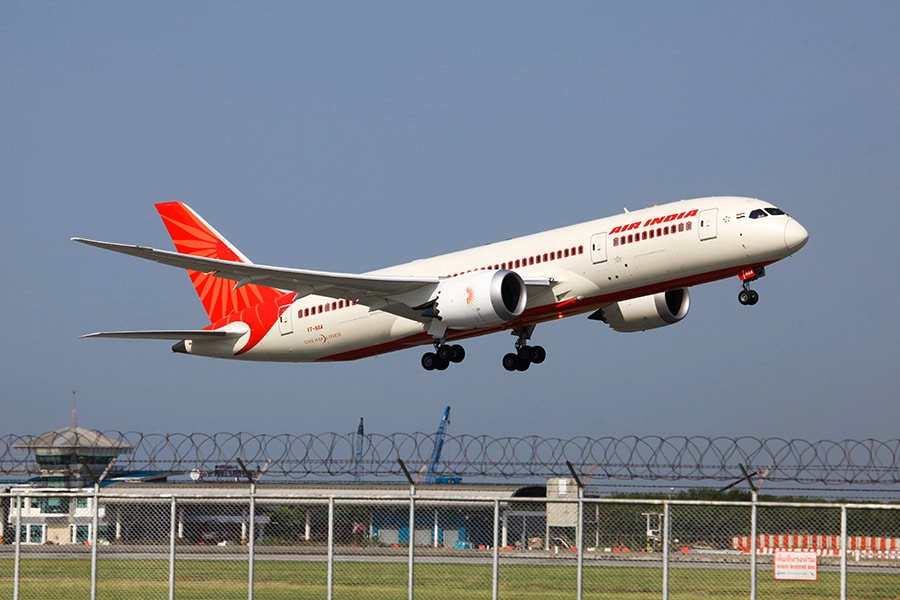Air India sale was a damp squib; will the government now bite the bullet?
Given that there are no takers for the loss-making carrier, the best option is to opt for the insolvency route or sell the flag carrier on a piecemeal basis


 Image: Shutterstock The government’s bid to sell loss-ridden Air India has found no takers. Given that it’s the taxpayers’ money that keeps the national carrier flying, the government ought to pay heed to what the US civil rights activist Martin Luther King Jr had once said, “There comes a time when one must take a position that is neither safe, nor politic, nor popular, but he must take it because conscience tells him it is right.”
Image: Shutterstock The government’s bid to sell loss-ridden Air India has found no takers. Given that it’s the taxpayers’ money that keeps the national carrier flying, the government ought to pay heed to what the US civil rights activist Martin Luther King Jr had once said, “There comes a time when one must take a position that is neither safe, nor politic, nor popular, but he must take it because conscience tells him it is right.”
In hindsight, Rakesh Gangwal, the billionaire co-founder of India’s largest airline IndiGo, had in July 2017 made the best unsolicited recommendation for the sale of Air India. He was keen that the government split Air India’s domestic and international operations IndiGo was keen on buying the latter. Gangwal also suggested that the airline’s domestic operations be sold in parts “based on certain types of flying” to various regional carriers. Here, too, IndiGo seemed interested in buying certain routes.
Such a divestment plan would have invited huge interest from domestic airlines—national and regional—in the belief that each would be taking on a smaller, yet manageable, proportion of Air India’s ₹52,000-crore debt.
The complexity of such a sale, given Air India’s 29,000-strong workforce and active labour unions, was never going to be easy. However, Gangwal’s proposal had an underlying message: Brand Air India would have to be killed and the government would have to give up all interest in the loss-making carrier, which was nationalised in 1953.
undefinedThe government is not willing to give up total control of Air India, despite efforts to shore up capital through PSU disinvestments[/bq]
The Narendra Modi-led government, despite its efforts to shore up capital through the disinvestment of public sector units, does not seem willing to give up total control of Air India. It comes as no surprise then that it did not receive a single bid for the sale of Air India—the bidding process closed on May 31—in which it looks to retain a 24 percent minority stake, in addition to other caveats.
“The best way now for the government is to either adopt an insolvency kind of procedure or sell all assets on a piecemeal basis,” says Harish HV, independent consultant and former partner at Grant Thornton India. “At some point, it will have to bite the bullet. Air India has assets, but its outstanding debt is far beyond what those assets can bear.”
While the insolvency route will come with no pre-conditions for buyers, the government will have to write off a significantly large part of the airline’s debt. “At this point, given that next year is an election year, it’s unlikely that’s going to happen,” says Harish.
First Published: Jun 01, 2018, 15:31
Subscribe Now